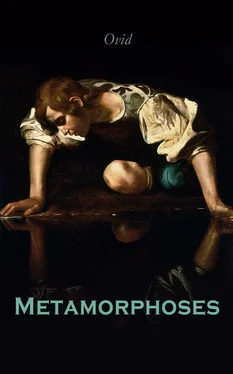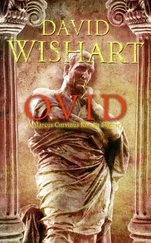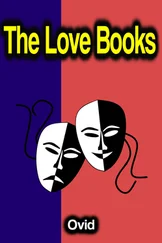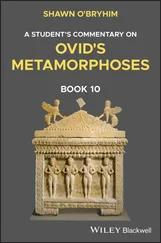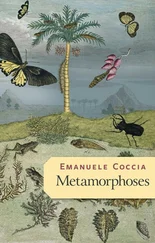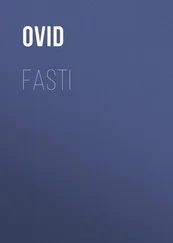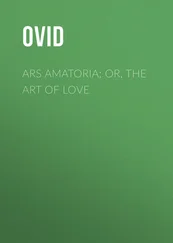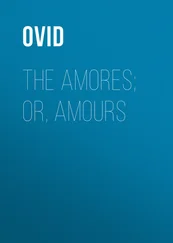Ovid - Metamorphoses
Здесь есть возможность читать онлайн «Ovid - Metamorphoses» — ознакомительный отрывок электронной книги совершенно бесплатно, а после прочтения отрывка купить полную версию. В некоторых случаях можно слушать аудио, скачать через торрент в формате fb2 и присутствует краткое содержание. Жанр: unrecognised, на английском языке. Описание произведения, (предисловие) а так же отзывы посетителей доступны на портале библиотеки ЛибКат.
- Название:Metamorphoses
- Автор:
- Жанр:
- Год:неизвестен
- ISBN:нет данных
- Рейтинг книги:3 / 5. Голосов: 1
-
Избранное:Добавить в избранное
- Отзывы:
-
Ваша оценка:
- 60
- 1
- 2
- 3
- 4
- 5
Metamorphoses: краткое содержание, описание и аннотация
Предлагаем к чтению аннотацию, описание, краткое содержание или предисловие (зависит от того, что написал сам автор книги «Metamorphoses»). Если вы не нашли необходимую информацию о книге — напишите в комментариях, мы постараемся отыскать её.
Metamorphoses — читать онлайн ознакомительный отрывок
Ниже представлен текст книги, разбитый по страницам. Система сохранения места последней прочитанной страницы, позволяет с удобством читать онлайн бесплатно книгу «Metamorphoses», без необходимости каждый раз заново искать на чём Вы остановились. Поставьте закладку, и сможете в любой момент перейти на страницу, на которой закончили чтение.
Интервал:
Закладка:
His grandfather, 85 Cadmus , Athamas, and the rest of the company of his friends rebuke him with expostulations, and in vain try to restrain him. By their admonition he becomes more violent, and by being curbed his fury is irritated, and is on the increase, and the very restraint did him injury. So have I beheld a torrent, where nothing obstructed it in its course, run gently and with moderate noise; but wherever beams and stones in its way withheld it, it ran foaming and raging, and more violent from its obstruction. Behold! the servants return, all stained with blood; and when their master inquires where Bacchus is, they deny that they have seen Bacchus. “But this one,” say they, “we have taken, who was his attendant and minister in his sacred rites.” And then they deliver one, who, from the Etrurian nation, had followed the sacred rites of the Deity, with his hands bound behind his back.
Pentheus looks at him with eyes that anger has made terrible, and although he can scarcely defer the time of his punishment, he says, “O wretch , doomed to destruction, and about, by thy death, to set an example to others, tell me thy name, and the name of thy parents, and thy country, and why thou dost attend the sacred rites of a new fashion.” He, void of fear, says, “My name is Acœtes; Mæonia 86is my country; my parents were of humble station. My father left me no fields for the hardy oxen to till, no wool-bearing flocks, nor any herds. He himself was but poor, and he was wont with line, and hooks, to deceive the leaping fishes, and to take them with the rod. His trade was his only possession. When he gave that calling over to me , he said, ‘Receive, as the successor and heir of my employment, those riches which I possess;’ and at his death he left me nothing but the streams. This one thing alone can I call my patrimony. But soon, that I might not always be confined to the same rocks, I learned with a steadying right hand to guide the helm of the ship, and I made observations with my eyes of the showery Constellation of the Olenian she-goat, 87and Taygete, 88and the Hyades, 89and the Bear, and the quarters of the winds, and the harbors fit for ships. By chance, as I was making for Delos, I touched at the coast of the land of Dia, 90and came up to the shore by plying the oars on the right side; and I gave a nimble leap, and lighted upon the wet sand. When the night was past, and the dawn first began to grow red, I arose and ordered my men to take in fresh water, and I pointed out the way which led to the stream. I myself, from a lofty eminence, looked around to see what the breeze promised me; and then I called my companions, and returned to the vessel. ‘Lo! we are here,’ says Opheltes, my chief mate; and having found, as he thought, a prize in the lonely fields, he was leading along the shore, a boy with all the beauty of a girl. He, heavy with wine and sleep, seemed to stagger, and to follow with difficulty. I examined his dress, his looks, and his gait, and I saw nothing there which could be taken to be mortal. I both was sensible of it, and I said to my companions, ‘I am in doubt what Deity is in that body; but in that body a Deity there is. Whoever thou art, O be propitious and assist our toils; and pardon these as well.’ ‘Cease praying for us,’ said Dictys, than whom there was not another more nimble at climbing to the main-top-yards, and at sliding down by catching hold of a rope. This Libys, this the yellow-haired Melanthus, the guardian of the prow, and this Alcimedon approved of; and Epopeus 91as well, the cheerer of their spirits, who by his voice gave both rest and time to the oars; and so did all the rest; so blind is the greed for booty. ‘However,’ I said, ‘I will not allow this ship to be damaged by this sacred freight. Here I have the greatest share of right.’ and I opposed them at the entrance.
“Lycabas, the boldest of all the number, was enraged, who, expelled from a city of Etruria, was suffering exile as the punishment for a dreadful murder. 92He, while I was resisting, seized hold of my throat with his youthful fist, and shaking me, had thrown me overboard into the sea, if I had not, although stunned, held fast by grasping a rope. The impious crew approved of the deed. Then at last Bacchus (for Bacchus it was), as though his sleep had been broken by the noise, and his sense was returning into his breast after much wine, said: ‘What are you doing? What is this noise? Tell me, sailors, by what means have I come hither? Whither do you intend to carry me?’ ‘Lay aside thy fears,’ said Proreus, ‘and tell us what port thou wouldst wish to reach. Thou shalt stop at the land that thou desirest.’ ‘Direct your course then to Naxos,’ 93says Liber, ‘that is my home; it shall prove a hospitable land for you.’
“In their deceit they swore by the ocean and by all the Deities, that so it should be; and bade me give sail to the painted ship. Naxos was to our right; and as I was accordingly setting sail for the right hand, every one said for himself, ‘What art thou about, madman? What insanity possesses thee, Acœtes? Stand away to the left.’ The greater part signified their meaning to me by signs; some whispered in my ear what they wanted. I was at a loss, and I said, ‘Let some one else take the helm;’ and I withdrew myself from the execution both of their wickedness, and of my own calling. I was reviled by them all, and the whole crew muttered reproaches against me. Æthalion, among them, says, ‘As if, forsooth, all our safety is centred in thee,’ and he himself comes up, and takes my duty; and leaving Naxos, he steers a different course. Then the God, mocking them as if he had at last but that moment discovered their knavery, looks down upon the sea from the crooked stern; and, like one weeping, he says: ‘These are not the shores, sailors, that you have promised me; this is not the land desired by me. By what act have I deserved this treatment? What honor is it to you, if you that are young men, deceive a mere boy? if you that are many, deceive me, who am but one?’ I had been weeping for some time. The impious gang laughed at my tears, and beat the sea with hastening oars. Now by himself do I swear to thee (and no God is there more powerful than he), that I am relating things to thee as true, as they are beyond all belief. The ship stood still upon the ocean, no otherwise than if it was occupying a dry dock. They, wondering at it, persisted in the plying of their oars; they unfurled their sails, and endeavored to speed onward with this twofold aid. Ivy impeded the oars, 94and twined around them in encircling wreaths; and clung to the sails with heavy clusters of berries. He himself, having his head encircled with bunches of grapes, brandished a lance covered with vine leaves. Around him, tigers and visionary forms of lynxes, and savage bodies of spotted panthers, were extended.
“The men leaped overboard, whether it was madness or fear that caused this; and first of all , Medon began to grow black with fins, with a flattened body, and to bend in the curvature of the back-bone. To him Lycabas said, ‘Into what prodigy art thou changing?’ and, as he spoke, the opening of his mouth was wide, his nose became crooked, and his hardened skin received scales upon it. But Libys, while he was attempting to urge on the resisting oars, saw his hands shrink into a small compass, and now to be hands no longer, and that now, in fact , they may be pronounced fins. Another, desirous to extend his arms to the twisting ropes, had no arms, and becoming crooked, with a body deprived of limbs, he leaped into the waves; the end of his tail was hooked, just as the horns of the half-moon are curved. They flounce about on every side, and bedew the ship with plenteous spray, and again they emerge, and once more they return beneath the waves. They sport with all the appearance of a dance, and toss their sportive bodies, and blow forth the sea, received within their wide nostrils. Of twenty the moment before (for so many did that ship carry), I was the only one remaining. The God encouraged me, frightened and chilled with my body all trembling, and scarcely myself, saying, ‘Shake off thy fear, and make for Dia.’ Arriving there, I attended upon the sacred rites of Bacchus, at the kindled altars.”
Читать дальшеИнтервал:
Закладка:
Похожие книги на «Metamorphoses»
Представляем Вашему вниманию похожие книги на «Metamorphoses» списком для выбора. Мы отобрали схожую по названию и смыслу литературу в надежде предоставить читателям больше вариантов отыскать новые, интересные, ещё непрочитанные произведения.
Обсуждение, отзывы о книге «Metamorphoses» и просто собственные мнения читателей. Оставьте ваши комментарии, напишите, что Вы думаете о произведении, его смысле или главных героях. Укажите что конкретно понравилось, а что нет, и почему Вы так считаете.
